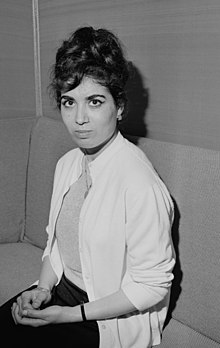
Simone Lucie Ernestine Marie Bertrand de Beauvoir was a French existentialist philosopher, writer, social theorist, and feminist activist. Though she did not consider herself a philosopher, nor was she considered one at the time of her death, she had a significant influence on both feminist existentialism and feminist theory.
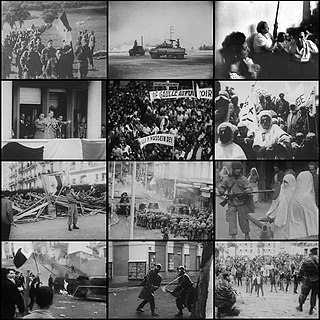
The Algerian War was a major armed conflict between France and the Algerian National Liberation Front (FLN) from 1954 to 1962, which led to Algeria winning its independence from France. An important decolonization war, it was a complex conflict characterized by guerrilla warfare and war crimes. The conflict also became a civil war between the different communities and within the communities. The war took place mainly on the territory of Algeria, with repercussions in metropolitan France.

Algerian nationalism is pride in the Algerian identity and culture. It has been historically influenced by the conflicts between the Deylik of Algiers and European countries, the French conquest of Algeria and the subsequent French colonial rule in Algeria, the Algerian War, and since independence by Arab socialism, Islamism and Arab nationalism.

Gisèle Halimi was a Tunisian-French lawyer, politician, essayist and feminist activist.

Djamila Bouhired is an Algerian militant. Bouhired is a nationalist who opposed the French colonial rule of Algeria. She was raised in a middle-class family, having attended a French school in Algeria. She would go on in her youth to join the Algerian National Liberation Front (FLN) while a student activist. There she worked as a liaison officer and personal assistant of FLN commander Yacef Saadi in Algiers.
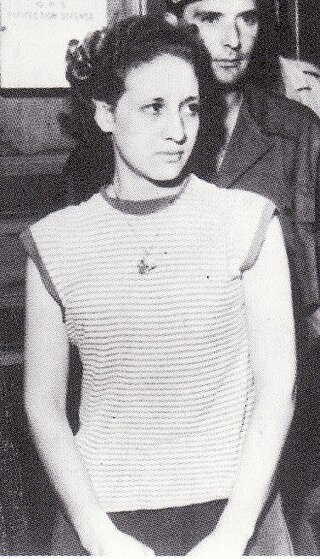
Zohra Drif Bitat is a retired Algerian lawyer, moudjahid, and the vice-president of the Council of the Nation, the upper house of the Algerian Parliament. Drif was born in Tissemselt, Algeria, part of the province of Tiaret, where her grandfather was an imam and her father served as a lawyer and judge in Tiaret. She is best known for her activities on behalf of the National Liberation Front (FLN) during the Algerian War of Independence.

Elements from the French Armed Forces used deliberate torture during the Algerian War (1954–1962), creating an ongoing public controversy. Pierre Vidal-Naquet, a renowned French historian, estimated that there were "hundreds of thousands of instances of torture" by the French military in Algeria.
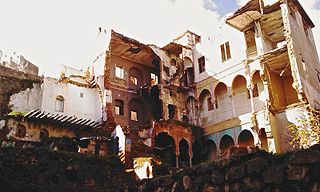
The Battle of Algiers was a campaign fought during the Algerian War. It consisted of urban guerrilla warfare and terrorist attacks carried out by the National Liberation Front (FLN) against the French authorities in Algiers, and by the French authorities, army, and French terrorist organizations against the FLN. Both sides targeted civilians throughout the battle. The conflict began with attacks by the FLN against the French forces and Pieds-Noirs followed by a terrorist attack on Algerian civilians in Algiers by a group of settlers, part of the terrorist group "La Main Rouge", aided by the police. Reprisals followed and the violence escalated, leading the French Governor-General to deploy the French Army in Algiers to suppress the FLN. Civilian authorities gave full powers to General Jacques Massu who, operating outside legal frameworks between January and September 1957, eliminated the FLN from Algiers. The use of torture, forced disappearances and illegal executions by the French later caused controversy in France.
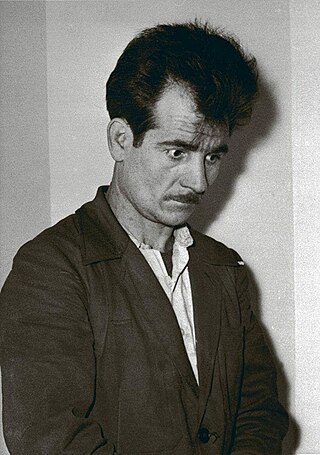
Fernand Iveton was the only pied noir among the 198 supporters of the FLN who were executed during the Algerian War.
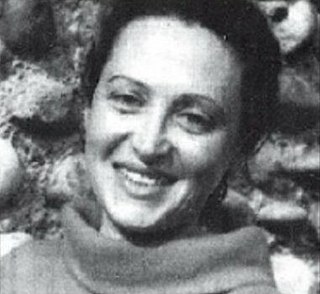
Jacqueline Netter-Minne-Guerroudj was a Frenchwoman condemned to death as an accomplice of Fernand Iveton during the Algerian War. She was never executed, partly due to a campaign on her behalf conducted by Simone de Beauvoir.
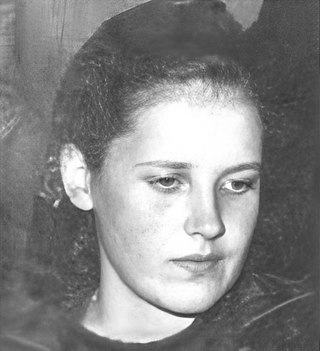
Danièle Minne was one of the few European women convicted of assisting the FLN during the Algerian War. Her mother Jacqueline Netter-Minne-Guerroudj and her stepfather Abdelkader Guerroudj, were both condemned to death as accomplices of Fernand Iveton, the only European who was guillotined for his part in the Algerian revolt. Her mother was never executed, partly due to a campaign on her behalf conducted by Simone de Beauvoir; her stepfather was also freed.

Throughout Algeria's history as an independent state, there has been conflict between women's rights activists and conservatives about the status of women in Algeria. The 1984 Algerian Family Code entrenched certain forms of gender inequality and discrimination against women. Some progressive reforms were implemented in 2005 amendments to the law, but women are still unequal under Algerian law.
The Manifesto of the 343 is a French petition penned by Simone de Beauvoir, and signed by 343 women, all publicly declaring that they had had an illegal abortion. The manifesto was published under the title, "Un appel de 343 femmes", on 5 April 1971, in issue 334 of Le Nouvel Observateur, a social democratic French weekly magazine. The piece was the sole topic on the magazine cover. Abortion was illegal in France, and by admitting publicly to having aborted, women exposed themselves to criminal prosecution.

Women fulfilled a number of different functions during the Algerian War (1954–1962). The majority of Muslim women who became active participants did so on the side of the National Liberation Front (FLN). The French included some women, both Muslim and French, in their war effort, but they were not as fully integrated, nor were they charged with the same breadth of tasks as their Algerian sisters. The total number of women involved in the conflict, as determined by post-war veteran registration, is numbered at 11,000, but it is possible that this number was significantly higher due to underreporting.

Jamila, the Algerian is a 1958 Egyptian historical film about one of the most important figures in the history of Algeria, Djamila Bouhired. The film was produced by Youssef Chahine and written by Abd al-Rahman Sharqawi, Ali al-Zarqani, and Naguib Mahfouz. It is regarded as not only highlighting the story of an important female revolutionary, but also showing the struggle of the Algerian people against the French occupation. The film stars Magda, Salah Zulfikar and Ahmed Mazhar in the leading roles.
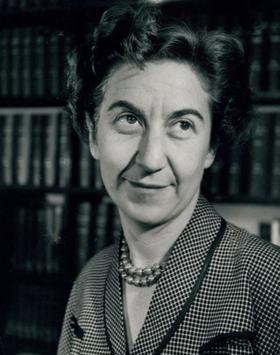
Leah Nora Beloff was an English journalist and political writer. She worked for The Observer for three decades, from 1948 to 1978, and became a political correspondent in 1964, making her the first woman in such a role for a British newspaper.
Louisette Ighilahriz is an Algerian writer, former Conseil de la Nation member, and a former member of the Front de Libération Nationale (FLN) who came to widespread attention in 2000 with her story of captivity by the French from 1957 to 1962, becoming, in the words of the American journalist Adam Shatz, "a catalyst of a debate about the legacy of the French-Algerian war".

The Algerian popular resistance against French invasion refers to resistance in Algeria against the French conquest, which began with the invasion of Algiers in 1830 and lasted until 1903.
Baya Hocine, also known as Baya Mamadi was an Algerian independence fighter.
Marie-Claire Chevalier was a French abortion rights activist. She was defended in the Bobigny trial by Gisèle Halimi in 1972. The victory in this trial was key for the legalization of abortion in France and the Veil Act.
